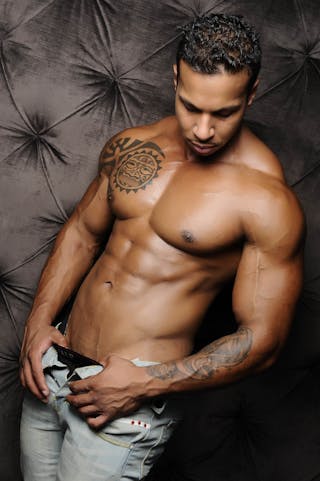The Complexities of Bisexuality and Coming Out
Have you ever felt like you were living a double life just to fit in? It can be tough to navigate your true identity and how to share it with others. But once you find the courage to embrace who you are, the freedom and authenticity that comes with it is incredibly empowering. If you're looking to connect with like-minded individuals and explore your sexuality, check out these hookup websites in Cleveland to find a community that celebrates you for you.
Bisexuality is a sexual orientation that is often misunderstood and marginalized in both heterosexual and LGBTQ+ communities. Unlike being gay or straight, which are more easily understood within the binary framework of attraction to one gender, bisexuality challenges this binary by encompassing attraction to both men and women. Unfortunately, due to the stigma and misconceptions surrounding bisexuality, many people who identify as bisexual struggle to come out and be open about their sexual orientation.
Check out the reviews on Bi Empire and see why you should give it a try!
The Importance of Coming Out
Explore your desires with Aurora Bondage Personals and discover a new world of excitement and pleasure – give it a try!
Coming out is a deeply personal and often challenging process for individuals who are not heterosexual. It involves disclosing one's sexual orientation to friends, family, and the world at large. For many people, coming out is an important step towards self-acceptance and living authentically. However, for bisexual individuals, coming out can be even more complicated due to the unique challenges they face.
Explore the best bisexual porn sites with exclusive promotions
Bisexual Erasure and Biphobia
One of the main reasons why many bisexual people hesitate to come out is the prevalence of bisexual erasure and biphobia. Bisexual erasure refers to the tendency to ignore, deny, or downplay the existence of bisexuality. This can manifest in various ways, such as assuming that a bisexual person is either gay or straight depending on the gender of their current partner, or dismissing bisexuality as a phase or a cover for being gay.
Biphobia, on the other hand, refers to the prejudice and discrimination faced by bisexual individuals. Unfortunately, biphobia is not only perpetuated by the heterosexual community but also within the LGBTQ+ community itself. Bisexual people are often accused of not being "gay enough" or "straight enough," and are stereotyped as being promiscuous, indecisive, or unfaithful.
The Fear of Invalidation and Rejection
Given the prevalence of bisexual erasure and biphobia, many bisexual individuals fear that coming out will result in invalidation and rejection from both heterosexual and LGBTQ+ communities. Some worry that they will be told that their sexual orientation is not real, while others fear being judged or ostracized by their peers. This fear of invalidation and rejection can lead to feelings of isolation and alienation, making it difficult for bisexual individuals to be open about their sexuality.
The Pressure to Choose a Side
Another factor that complicates coming out for bisexual people is the pressure to choose a side. In a society that often views sexuality as a binary concept, bisexual individuals are often pressured to pick a label and stick to it. This pressure can come from both within and outside the LGBTQ+ community, leading many bisexual people to feel like they have to hide or downplay their attraction to one gender in order to fit into societal expectations.
The Impact of Heteronormativity
Heteronormativity, or the belief that heterosexuality is the norm and all other sexual orientations are abnormal, also plays a significant role in why many bisexual people don't just come out. In a world where heterosexuality is constantly portrayed as the default, bisexual individuals may feel like their sexuality is not valid or worthy of recognition. This can make it difficult for them to feel comfortable being open about their bisexuality.
The Need for Inclusive Spaces
In order to create a more inclusive and supportive environment for bisexual individuals, it is important for society to recognize and validate bisexuality as a legitimate sexual orientation. This includes challenging stereotypes and misconceptions about bisexuality, as well as creating spaces where bisexual people feel safe and accepted.
Dating platforms can also play a role in providing inclusive spaces for bisexual individuals to connect with others who understand and appreciate their sexuality. By offering features that allow users to express their bisexuality and connect with other bisexual individuals, dating platforms can help to combat the stigma and isolation that many bisexual people experience.
In conclusion, the decision to come out is a deeply personal one, and for bisexual individuals, it is often complicated by the unique challenges they face. By understanding and addressing the factors that contribute to why many bisexual people don't just come out, we can work towards creating a more inclusive and supportive society for all sexual orientations.
- https://personals-website.getweps.com/posts/my-best-sex-ever-was-with-a-bollywood-star/
- https://singles-website.timebombrecordings.com/posts/what-does-demisexual-and-demiromantic-mean/
- https://hookupguide.timebombrecordings.com/posts/the-25-best-sexy-pyjamas-to-shop-for-valentines-day-2024/
- https://online-dating.getweps.com/posts/my-best-sex-ever-was-a-quickie-with-a-complete-stranger/
- https://sex-app.thehottieandthenottie.com/posts/why-you-overshare-after-sex/
- https://singles.thehottieandthenottie.com/posts/my-best-sex-ever-was-with-a-bollywood-star/
- https://datingguide.thehottieandthenottie.com/posts/polyamory-diaries-11-i-love-my-wife-and-my-girlfriend/
- https://chatting.getweps.com/posts/anal-sex-positions-youre-going-to-want-to-try/
- https://dating-for-free.ua-sex.com/posts/sex-dreams-sex-dream-meaning-explained/
- https://sexting.timebombrecordings.com/posts/
- https://location-dating.getweps.com/posts/threesome-positions-6-best-threesome-sex-positions/
- https://personals-website.getweps.com/posts/sex-after-birth-how-long-after-giving-birth-can-you-have-sex/
- https://singles-chat.fu-direct.net/posts/how-to-lick-a-girl-out-how-to-eat-a-girl-out-oral-sex-tips/
- https://free-dating-website.timebombrecordings.com/posts/first-one-night-stand-stories-11-women-recall-their-first-casual-sex/
